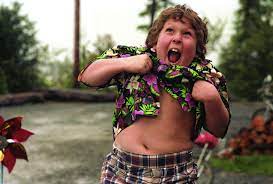In my 10 years of parenting, I’ve been so grateful for scripts when handling tough situations. Experts have helped me through tantrums, teeth brushing refusal, bedtime anguish, and motor skill navigation. As I’ve heard from a few folks in the past couple of weeks that their elementary school aged children have been called fat by peers, I wanted to offer a script for this situation.
First, though, what not to say. Please fight your instinct to immediately say “you are not fat!” Your child may not be fat. Or they may be a little on the larger side. Or they may be much higher than the 100 percentile on weight charts. Doesn’t matter. That’s actually not what we’re talking about (yet). When you immediately go to “you’re not fat!” it sends the message that being fat is a horrible thing. We want to counter that mindset.
Step one: Check in with your kid and take care of them. How are they feeling about being called fat? Avoid putting your own baggage on them-they may feel angry, sad, or ashamed, but they may simply feel confused or even amused. Tend to their feelings first and let them know that any way they are feeling is okay and you’ll help them through it.
Step two: Tell them you want to talk about being called fat and ask if now is a good time for them. I know my kids often have their own agendas for their days and if they had planned on coming home and doing puzzles, they’re not going to be into a conversation until they’ve had puzzle time. So get consent about the conversation.
Step three: Once they’re ready to talk about it, take the lead. Start with “some people think that certain bodies are better than others. They might think it’s better to have white skin instead of brown skin, or that it’s better to have ancestors from one part of the world than another. Some people also think that thinner bodies are better than fatter bodies.” Let that sink in and check in to see if they have any questions. Then continue with “WE know that no body is better than another body and that all people deserve to be treated with dignity and respect. In OUR family, someone’s body size or shape or color or abilities may be things about them that we notice, but we don’t think that any one aspect is better or worse. We know that every body is different and we’re okay with that.” I repeat all the time that “bodies come in all shapes, sizes and colors.” Obviously tailor the specific language to how you speak and how your kid receives it, but the important thing is to reassure your child that you will never see a problem with their body.
Step four: please don’t gaslight your kid about their body. If they are not fat, don’t lead them to believe that they might be. Due to our thin-obsessed culture, most everyone except the very skinniest believes themselves to be fat. Your child’s body will change dramatically in the first 18 years of their life, please do your own work to trust that their body is doing what it needs to do if there is clearly no pathology. Reminder: extra weight alone is not pathology. If they *are* fat, don’t lie to them about it. Keep reassuring them that you love them and that you don’t think their body is a problem. We can’t control how the world treats our kids, but we can control how we treat them at home. Work to create a safe, welcoming, loving environment for your kids. That means no body shaming at home.

